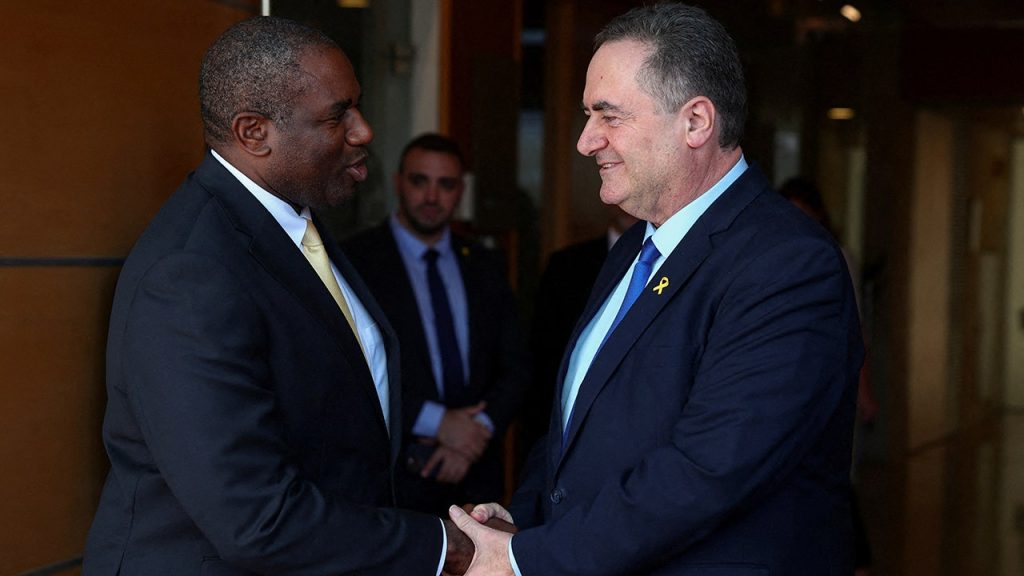The United Kingdom has decided to suspend dozens of weapons exports to Israel out of concern that the arms could be used to violate international law. This decision came shortly after six hostages from Israel were murdered by Hamas. The suspended export licenses include equipment such as parts for military aircraft and drones, as well as items used for ground targeting. British Foreign Secretary David Lammy emphasized that this move was not meant to determine Israel’s guilt or innocence in violating international law, and it was not an arms embargo. However, Lammy stated that there was a clear risk that the equipment could be used to commit or facilitate serious violations of international humanitarian law during the conflict in Gaza.
Israeli Defense Minister Yoav Gallant expressed his disappointment with the British government’s decision to impose “sanctions” on the export licenses, particularly at a time when Israel is fighting on multiple fronts against terrorism. He highlighted the recent execution of six hostages by Hamas and emphasized Israel’s commitment to defending its people. In response, Israeli Foreign Minister Israel Katz criticized the U.K.’s move, stating that it sends a problematic message to the Iranian-backed Hamas terrorist group. Katz stressed that Israel is a law-abiding state that operates within international law and has an independent and respected judicial system. He expressed hope that the strong friendship between Israel and the U.K. will continue into the future.
During this turmoil, President Biden claimed that Israeli Prime Minister Benjamin Netanyahu was not doing enough to secure a hostage deal with Hamas terrorists following the murder of 23-year-old Israeli-American Hersh Goldberg-Polin and five other hostages. Biden and Vice President Harris assembled a negotiating team in the Situation Room to address the hostage situation. The decision to suspend weapons exports to Israel and Biden’s criticism of Netanyahu come amidst escalating tensions in the region, including the recent hostilities and violence perpetrated by Hamas. The situation remains complex and challenging, requiring diplomatic efforts to address the conflicts and secure the release of hostages.
The U.K.’s decision to suspend weapons exports to Israel has sparked debate and criticism from Israeli officials, who view it as problematic and potentially damaging to the bilateral relationship. Israeli leaders have emphasized their commitment to upholding international law and their efforts to defend the state and its citizens. The recent execution of hostages by Hamas has further heightened tensions in the region, prompting calls for negotiations and diplomatic solutions to address the conflict. The involvement of President Biden and Vice President Harris in convening a negotiating team reflects the urgency and gravity of the situation, as efforts are made to secure the release of hostages and work towards a ceasefire.
The ongoing conflict involving Hamas and Israel underscores the complexities and challenges of the situation in the Middle East. The suspension of weapons exports by the U.K., Biden’s criticism of Netanyahu, and the efforts to negotiate a hostage deal highlight the need for diplomatic solutions and international cooperation. Both Israel and the U.K. have emphasized the importance of upholding international law and advocating for peace and security in the region. As the situation continues to evolve, it remains crucial for all parties involved to work towards de-escalation, resolution of conflicts, and the protection of civilians. Diplomatic efforts and dialogue play a key role in addressing the root causes of the conflict and fostering greater stability and security in the region.


